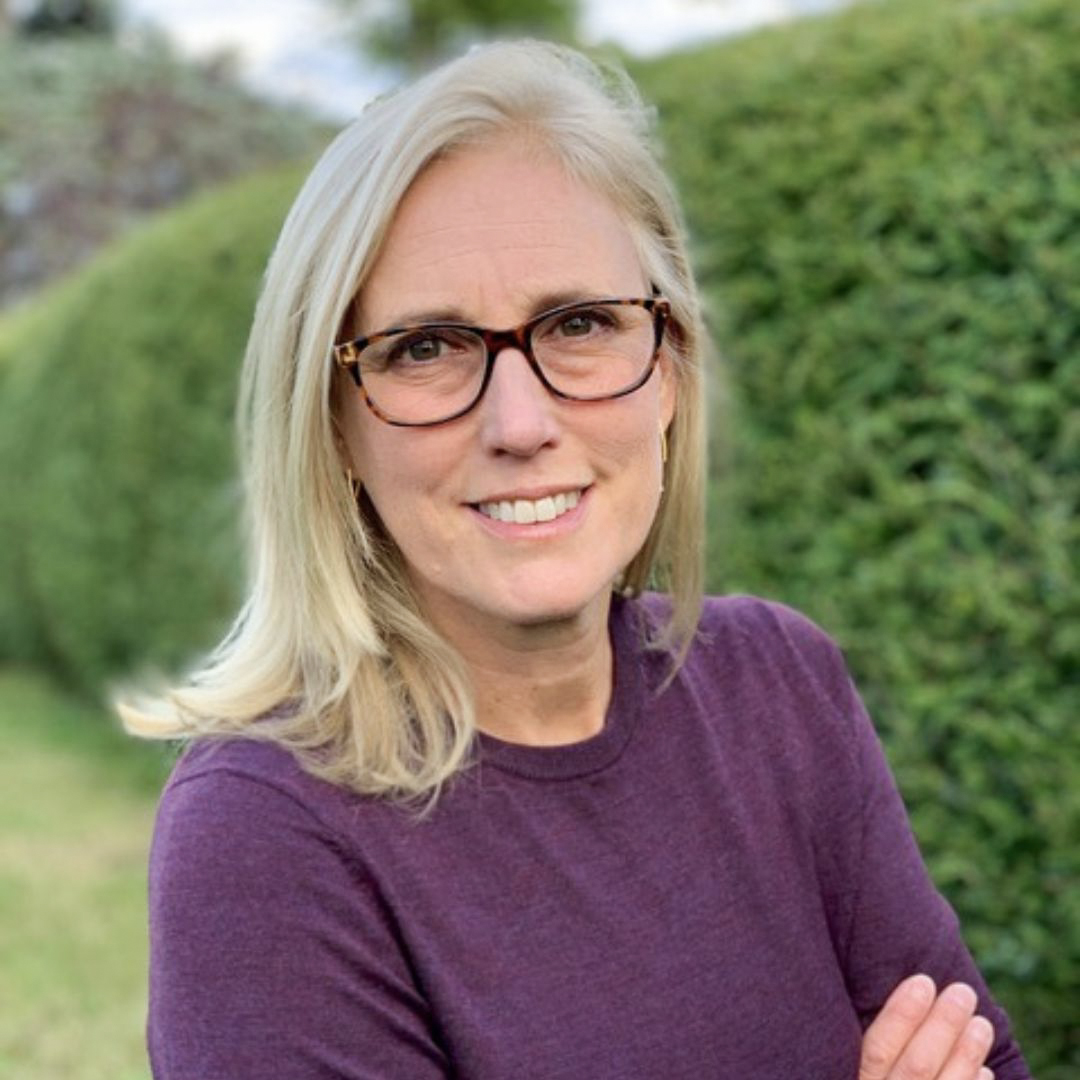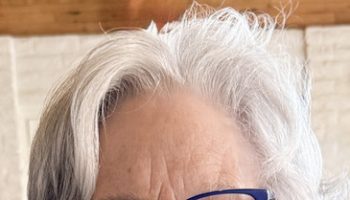
At many public colleges and universities, there’s a keen need for professionals to share their knowledge and skills with students as part-time, adjunct faculty.
So contends Chautauquan Sarah Dyer, leader-in-residence and adjunct professor at the City College of New York’s Colin Powell School for Civic and Global Leadership.
Dyer will discuss her experience of “Going Back to School as a Professor” as part of the Chautauqua Women’s Club’s Chautauqua Speaks series at 9:15 a.m. Tuesday at the CWC House.
Having led this remarkable series showcasing the depth and breadth of experience within the Chautauqua community for several years, Mary Pat McFarland this season has passed the baton to Norma Ingram, who will introduce Dyer.
In a nutshell, Dyer is a self-described “communications and organizational leadership professional who has served large and small companies in the financial services industry, as well as nonprofit organizations and social enterprises. A dominant theme in her professional life has been hands-on, pragmatic advocacy for diversity and equity within the financial services industry.”
Serving as a college instructor is not a position that Dyer had envisioned for herself, especially since she hasn’t earned a doctoral degree. A dean at CUNY recognized her professional contributions and sought her expertise.
“If you want to feel optimistic about where we are heading, I’d advise you to get involved in the lives of young adults in a meaningful way,” Dyer said. “I’ve been uplifted by their optimism and courage. I feel tremendous optimism about the people coming through universities today. They’re an antidote for doom and gloom.”
The purpose of Dyer’s CWC talk is threefold. She will lead a “discussion of the growing dependence on adjunct faculty in higher education to better equip students with practical skills, current industry knowledge, and a helpful professional network.”
She will also “share insights from her experience as an adjunct professor.” And she will “address how this trend presents opportunities for mid- to late-career professionals to make a substantial contribution to the next generation while diversifying their careers.”
Based on Dyer’s experience and observations, she regards recent retirees; professionals with “a high degree of control over their time”; people who write books or are on a speaker’s circuit; and individuals with subject matter expertise as particularly good candidates for adjunct faculty positions.
“Many people don’t work from 9 to 5 at a big company,” she said. “They have portfolio careers. They’re gig workers. They wrap their jobs and roles around family and other responsibilities. I’ll explain how (higher ed) teaching can be a leg of a stool. It’s so much harder to teach sub-18.”
While “no one will get rich” as an adjunct faculty member, Dyer said it’s a “way to open doors, to do what you do best, and to teach what you know best to an audience who’s in a relationship with you.”
For anyone thinking that an adjunct teaching position may be too much of a responsibility at this time, not to worry. Dyer has numerous suggestions for how one might serve in a volunteer capacity, including via student mentoring and coaching, and she can provide guidance regarding effective ways of positioning oneself for these roles.
At CUNY, for instance, Dyer said “there’s an enormous buffet of opportunities.”
Having grown up outside of Washington, D.C., in Fairfax County, Virginia, Dyer majored in philosophy and religion at Colgate University in Hamilton, New York. Yet immediately following graduation, she said she made New York City, and the world of financial services, particularly asset management, her home turf.
“My professional life tracked the growth of the asset management industry,” said Dyer. “I was at companies that have now been merged and blended, as there has been so much consolidation within the industry.”
Thus far, she has devoted her entire career to working “within and adjacent to” this field.
As a young professional, Dyer and a couple of female friends formed an organization in 2001 that “took off following Sept. 11.” She said that it “grew dramatically … and today is the largest organization in the world serving women working in financial services.”
Because at the turn of the 21st century about 98% of the people launching alternative investments (specifically hedge funds) were men, Dyer and her friends created a network — 100 Women in Finance — “to step out in a positive way.” At some point, she took on the responsibilities of chief marketing officer.
After 15 years in New York City, Dyer and her husband and children moved to Hong Kong, where she changed her professional focus to not-for-profits; undertook a variety of consulting projects; and became “deeply involved in nonprofit governance, and developed some specialty.” It was there that she found out about Chautauqua.
Dyer began working for 100 Women as its Asia Pacific Director, and in this capacity established affiliate organizations in Hong Kong, Singapore, and Sydney, Australia.
In addition, she established a relationship with the Asian University for Women in Chittagong, Bangladesh, which she said is modeled after Smith College in North Hampton, Massachusetts. Its mission is to educate and empower first-generation students from South and Central Asia. And, Dyer completed post-graduate coursework at The University of Hong Kong.
During the early days of the pandemic, she and her family left Hong Kong and returned to New York City, which she said “opened up a new chapter in trying new things.”
Presently, Dyer serves as the chair of AUW’s New York Advisory Board, which she said comprises New York City-based business leaders who care about women’s education. Connected to the Asian Diaspora, it “raises awareness, funds, and opportunities for the university from New York, and helps arrange internships for students and hire them when they graduate.”
As the current vice chair of the board of 100 Women in Finance, she said the organization continues to perform well for women who are the first or only in their company … and remains a big part of my life.”
According to Dyer, it has grown into a “global organization of more than 20,000 members in 30 locations, missioned to advance the careers of women working within the financial services industry and to enable greater access to internships and jobs within industry for pre-career women, especially those from diverse backgrounds.”
Dyer said her asset management work is heavily oriented toward marketing, as she uses “words and pictures to help people understand financial projects.” She also does “a lot of governance work.”
Last week, she was elected to the board of First Fund as an independent trustee. She said it has two new closed-end funds, one for alternative growth, and the other for alternative credit.
“My job will be to look out for the interest of shareholders, not management,” Dyer said. “It’s exciting to be part of a commercial enterprise.”
When “presented with the opportunity to work for CUNY, which was undergoing a very active and deliberate push to establish stronger connectivity … between (its) campuses … and schools, and the business district at the south end of Manhattan,” Dyer answered the call.
One of the two courses she has been teaching within the Colin Powell School’s Department of Economics and Business is “Fundamentals of Business & Leadership Communications.” Dyer provides first-year college students and rising sophomores with “concepts and techniques for effective written and verbal communication and personal presentation within corporate or other organizational settings.”
Her other course is “Business Case Analysis & Presentations” for rising juniors and seniors. Its goal is to “teach students to craft and present effective business arguments.”
More recently, Dyer became a full-time student at CUNY’s Baruch College, where she is a candidate for an Executive Master of Science degree in industrial and organizational psychology.
“It’s wonderful to see people who are invested in the future,” Dyer said. “(My students) aren’t greedy people. They’re not looking to extract riches for themselves. They want to be hardworking, purposeful contributors, and good colleagues and stewards.”
She continued: “They have an idea about the power of financial knowledge to uplift people. The knowledge they will earn and share will help their community to prosper. … I really do feel good about the students who are coming out of the (CUNY) system.”
Dyer hopes that Chautauquans will come to her CWC talk “with an open mind, willing to talk about students today — what’s in their heads and minds.”




